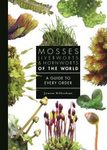![Explaining the Cosmos Explaining the Cosmos]()
Click to have a closer look
About this book
Contents
Customer reviews
Biography
Related titles
About this book
&i;Explaining the Cosmos&o; is a major reinterpretation of Greek scientific thought before Socrates. Focusing on the scientific tradition of philosophy, Daniel Graham argues that Presocratic philosophy is not a mere patchwork of different schools and styles of thought. Rather, there is a discernible and unified Ionian tradition that dominates Presocratic debates. Graham rejects the common interpretation of the early Ionians as "material monists" and also the view of the later Ionians as desperately trying to save scientific philosophy from Parmenides' criticisms.
Contents
PREFACE xi ABBREVIATIONS AND BRIEF REFERENCES xv Chapter 1: The Ionian Program 1 1.1 Anaximander's Project 4 1.2 Anaximander's Project as a Scientific Program 14 1.3 Toward an Understanding of the Ionian Tradition 18 Chapter 2: Anaximander's Principles 28 2.1 Out of the Boundless 28 2.2 Powers in Conflict 34 2.3 Elements and Powers 39 Chapter 3: Anaximenes' Theory of Change 45 3.1 The Theory of Change 45 3.2 Material Monism 48 3.3 Problems with Material Monism 50 3.4 Anaximenes and the Generating Substance Theory 67 3.5 Anaximenes' Achievement 82 Chapter 4: The Generating Substance Theory as an Explanatory Hypothesis 85 4.1 GST Formalized 85 4.2 A Compromise View? 88 4.3 GST as a Paradigm of Explanation 91 4.4 Advantages of GST 98 4.5 Disadvantages of GST 106 Chapter 5: Heraclitus's Criticism of Ionian Philosophy 113 5.1 Extreme Interpretations 113 5.2 Barnes's Argument for Heraclitus-F 118 5.3 The Unity of Opposites 122 5.4 The Flux Thesis 129 5.5 Heraclitus and GST 137 Chapter 6: Parmenides' Criticism of Ionian Philosophy 148 6.1 Parmenides' Response to Heraclitus 148 6.2 Parmenides' Criticism 155 6.3 Properties of What-Is 162 6.4 Deceptive Cosmology 169 6.5 Parmenides' Scientific Discovery 179 6.6 Parmenides' Response to GST 182 Chapter 7: Anaxagoras and Empedocles: Eleatic Pluralists 186 7.1 The Standard Interpretation 186 7.2 Questions about the Standard Intepretation 188 7.3 The Elemental Substance Theory 195 7.4 Parmenides and Origins of the Elemental Substance Theory 201 7.5 Two Theories of Elements 208 7.6 Empirical Advances 220 Chapter 8: The Elemental Substance Theory as an Explanatory Hypothesis 224 8.1 EST Formalized 224 8.2 EST and Eleatic Theory 227 8.3 EST with and without Emergence 229 8.4 Advantages of EST 233 8.5 Disadvantages of EST 241 Chapter 9: The Atomist Reform 250 9.1 The Challenge 250 9.2 Foundational Arguments 256 9.3 Atomism and EST 269 9.4 Birth of the Cosmos 271 Chapter 10: Diogenes of Apollonia and Material Monism 277 10.1 Diogenes in Modern Accounts 277 10.2 Diogenes in a New Light 279 10.3 Diogenes in Historical Context 284 10.4 A New Theory of Matter 290 Chapter 11: The Ionian Legacy 294 11.1 Paradigms of Explanation 294 11.2 Explanatory Progress 298 11.3 The Primacy of Ionian Research 302 REFERENCES 309 INDEX LOCORUM 327 GENERAL INDEX 337
Customer Reviews
Biography
Daniel W. Graham is A. O. Smoot Professor of Philosophy at Brigham Young University. He is the author of "Aristotle's Two Systems"; editor of the two-volume collected papers of Gregory Vlastos, "Studies in Greek Philosophy" (Princeton); and translator of and commentator on "Aristotle: Physics, Book VIII". He is a member of the editorial boards of "Apeiron" and "History of Philosophy Quarterly".














![Die Vogel-WG: Die Heinroths, ihre 1000 Vögel und die Anfänge der Verhaltensforschung [The Bird Wohngemeinschaft: The Heinroths, Their 1000 Birds and the Beginnings of Behavioral Research]](http://mediacdn.nhbs.com/jackets/jackets_resizer_medium/26/267983.jpg?height=150&width=107)



















